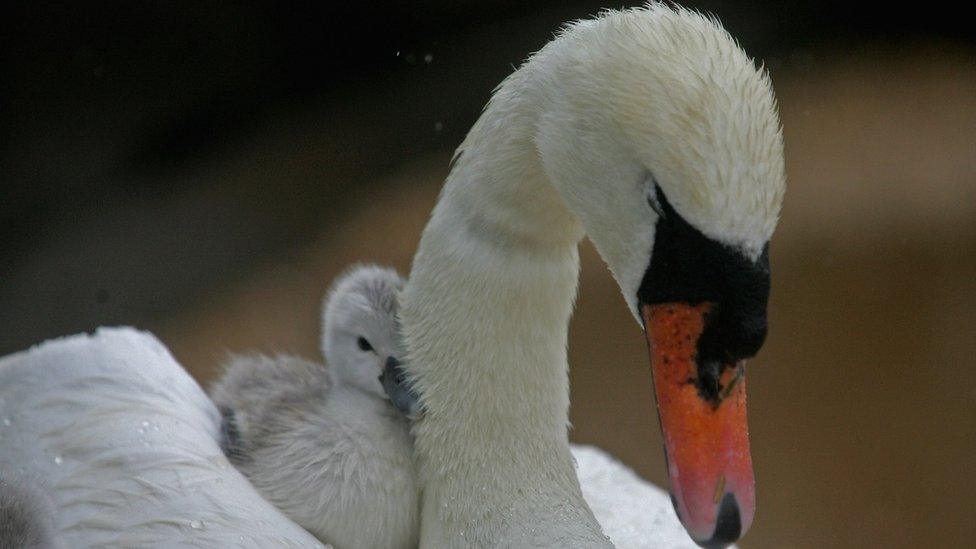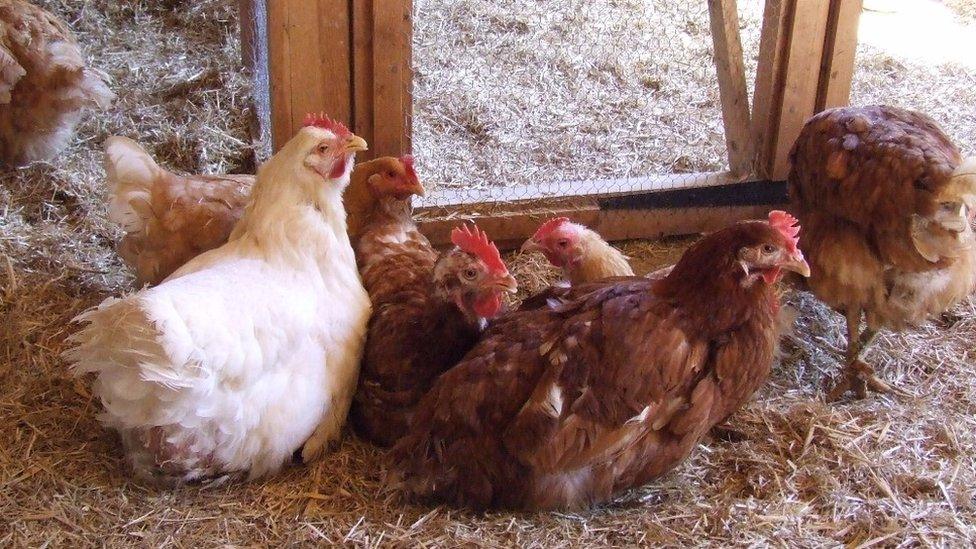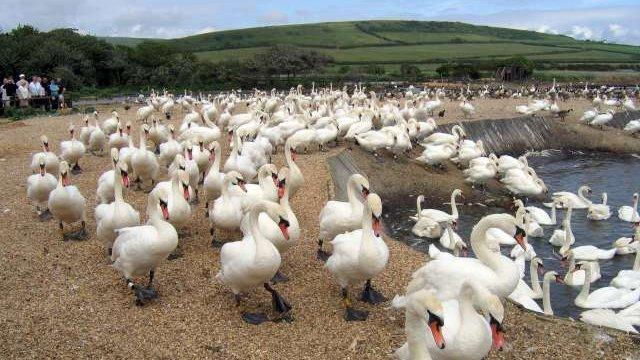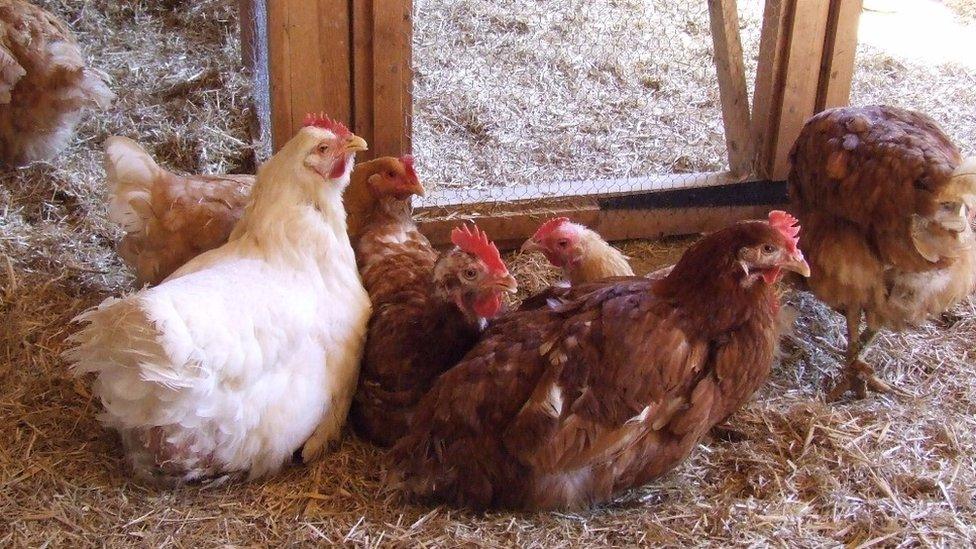Bird flu outbreak: What you need to know
- Published

Nine dead swans tested positive for the H5N8 strain
Nine swans are found to have died from bird flu in the latest outbreak in southern England. Is the disease in danger of spreading around the UK?
Abbotsbury Swannery in Dorset has seen about 80 birds die so far this winter, compared to a norm of 30 or 40. In most cases the cause of death is not known but nine have tested positive for the H5N8 strain of bird flu.
Official figures show this is the highest number of wild birds tested positive for avian influenza in the UK so far this winter.
In a report for the Department for Environment, Food and Rural Affairs (Defra), the International Disease Monitoring Team warned: "Environmental contamination will remain as a significant hazard, especially if wild waterfowl or gulls have regular access to the site, or contaminate the local area around the houses.
"So personal biosecurity is key to helping prevent contamination from being brought into a poultry house.
How many cases have there been?
So far, since the last two weeks of December 2016 there have been 10 official cases, external involving 29 wild birds testing positive.
At the end of December there were cases in Carmarthenshire, Leicestershire and Somerset involving one wigeon each. A wigeon is a type of dabbling duck.
The Leicestershire and Somerset cases were the first involving wild birds in England. Wild birds can carry the disease around the country and infect others.
Five wigeons were found to have died of bird flu in Lincolnshire in the last week of 2016.
Incidents of flu in kept birds have included a "small backyard flock" near Settle in North Yorkshire saw 17 birds affected, "several" of which had died from the disease.
Chickens and ducks were found with avian flu at a property in Carmarthenshire as were turkeys at a farm in Louth.
Defra has set up a 3km (1.9 miles) protection zone and 10km (6.2 miles) surveillance zone around affected sites, which is in force until 28 February.
The department has also imposed a prevention zone, covering England, following similar declarations in Scotland and Wales.
What is a prevention zone?

Avian flu was found in a small "backyard flock", Defra said
Chickens and other birds, whether kept for poultry, eggs or as pets, need to be kept from coming into contact with wild birds.
The government's chief veterinary officer Prof Nigel Gibbens said this means bringing birds into a "suitable building" if possible.
If they are brought inside into bird houses, they will still be classed as free range as the prevention zone means they can be housed for up to 12 weeks.
Other measures include making sure that feed and water cannot be accessed by wild birds, cleaning and disinfecting housing and equipment, vehicles and footwear.
Is there a risk to food?
The UK government says the risks to public health are "very low and avian flu does not pose a food safety risk for UK consumers".
What is the cause of this strain of bird flu?
We do not know.
According to the government's International Disease Monitoring Team: "The origin of this virus and the involvement of wild birds are not yet understood."
However, experts say finding bird flu in wild birds in Great Britain is "not surprising" given reports coming from across European countries including France, Germany, Poland, Sweden, Slovakia and the Czech Republic.
Cases have also been reported in Austria, Croatia, Denmark, Finland, France, Germany, Hungary, the Netherlands, Poland, Romania, Sweden, Switzerland, Ukraine and the Russian Federation since 3 November 2016.
What if I find a dead bird?
Anyone finding dead wild waterfowl (swans, geese or ducks) or other dead wild birds such as gulls or birds of prey can call the Defra helpline on 03459 33 55 77.
- Published9 January 2017

- Published7 January 2017
